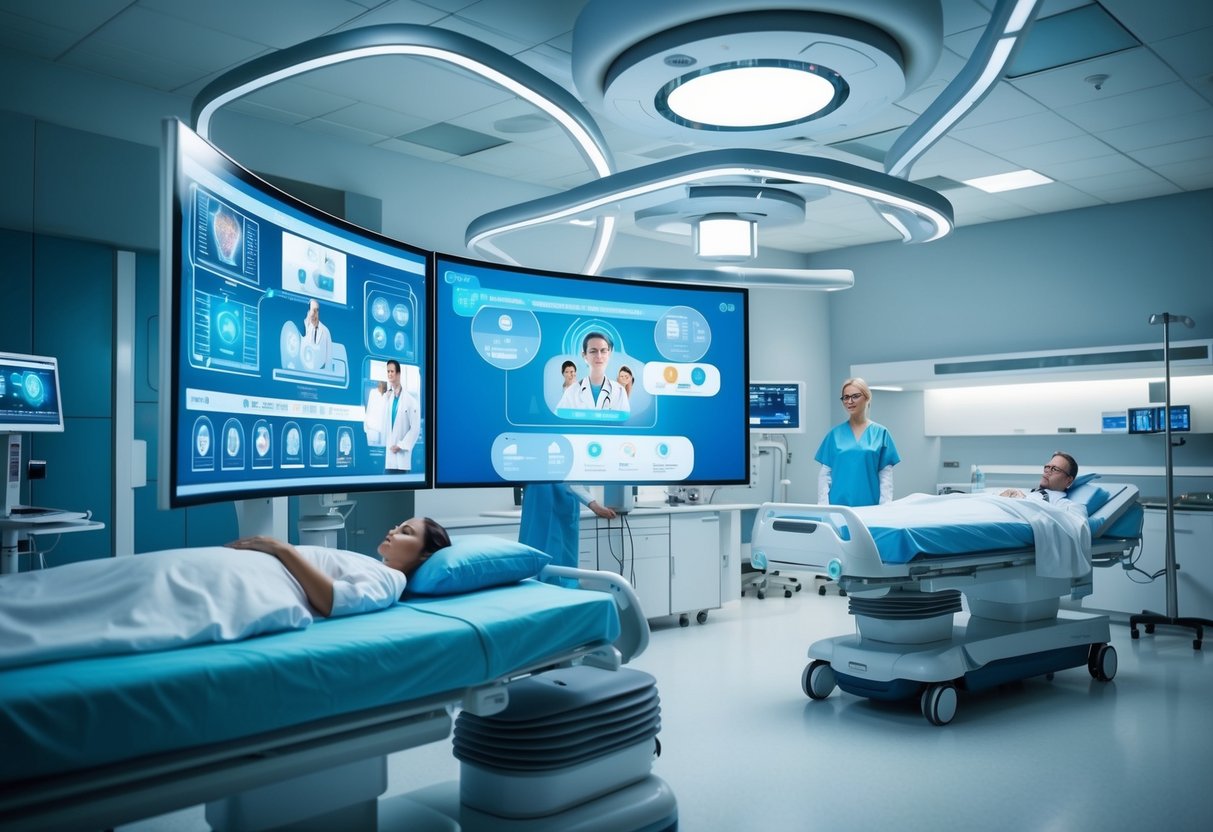
Healthcare Cost Savings and AI Efficiency
AI technologies hold significant promise in reducing healthcare costs and increasing the efficiency of patient care. They can help hospitals to minimize unnecessary expenses and enhance outcomes for patients.
Reducing Healthcare Costs
AI assists in identifying patterns and trends, enabling hospitals to forecast and manage resource allocation more effectively. Predictive analytics can anticipate patient inflow, allowing better staff allocation and inventory management, hence reducing operational costs. AI-powered diagnostic tools support faster and more precise diagnoses, which can significantly lower the need for expensive tests. By streamlining administrative tasks like patient scheduling and billing, AI reduces overheads, leading to substantial cost savings for healthcare providers.
Streamlined workflows foster quicker patient turnover, further cutting costs. Real-time data analysis prevents medication errors, reducing malpractice lawsuits and the associated financial repercussions. This cost-effective approach enables healthcare systems to invest in better facilities and equipment, enhancing the quality of patient care.
Minimizing Readmissions
AI technologies play a crucial role in minimizing hospital readmissions, a common indicator of healthcare inefficiency. Machine learning models predict high-risk cases, prompting timely interventions. This proactive approach allows healthcare providers to manage patient conditions before they require readmission, ultimately leading to better outcomes.
Remote monitoring tools track patient vitals and symptoms, providing alerts for any concerning changes, enabling immediate action. Personalized treatment plans developed through AI analysis of patient history reduce the likelihood of complications that lead to readmission. By addressing root causes of readmissions, these technologies promote a cost-effective healthcare system. Fewer readmissions translate to significant savings for both hospitals and patients, fostering an efficient healthcare environment.
Wearable Devices and Real-Time Monitoring
Incorporating wearable devices into healthcare allows for continuous, real-time monitoring, enhancing patient care as well as facilitating future capabilities in remote monitoring. These technologies drive actionable insights for preemptive treatments and preventive care.
Impact on Patient Care
Wearable devices play a significant role in modern patient care by tracking metrics like heart rate, activity levels, and sleep patterns. This data, collected in real-time, enables healthcare providers to detect abnormalities that might indicate early signs of chronic conditions.
The immediate access to such information can lead to prompt medical intervention, potentially mitigating more serious health complications. Beyond traditional check-ups, these devices empower patients by offering a more active role in managing their health.
Real-time monitoring allows caregivers to customize treatment plans that adapt to the ongoing needs of the patient, cultivating a more tailored and efficient healthcare experience. It not only enhances response times but also contributes to improved health outcomes.
Future of Remote Monitoring
The future of remote monitoring is poised to transform healthcare systems. Wearable technology will continue to evolve, offering even more sophisticated data analytics and insights. Devices could become more compact yet powerful, integrating with other digital health platforms to provide a seamless interface for both patients and healthcare providers.
As technology advances, more complex data sets could offer predictions about potential health risks before they arise. This capability would enable an anticipatory approach to healthcare that emphasizes prevention over reactive care.
Robust data security measures and patient privacy considerations will be paramount as technology integrates deeper into patient monitoring. Innovations in real-time data collection will further refine healthcare practices, setting the stage for a more proactive and personalized approach to patient care.